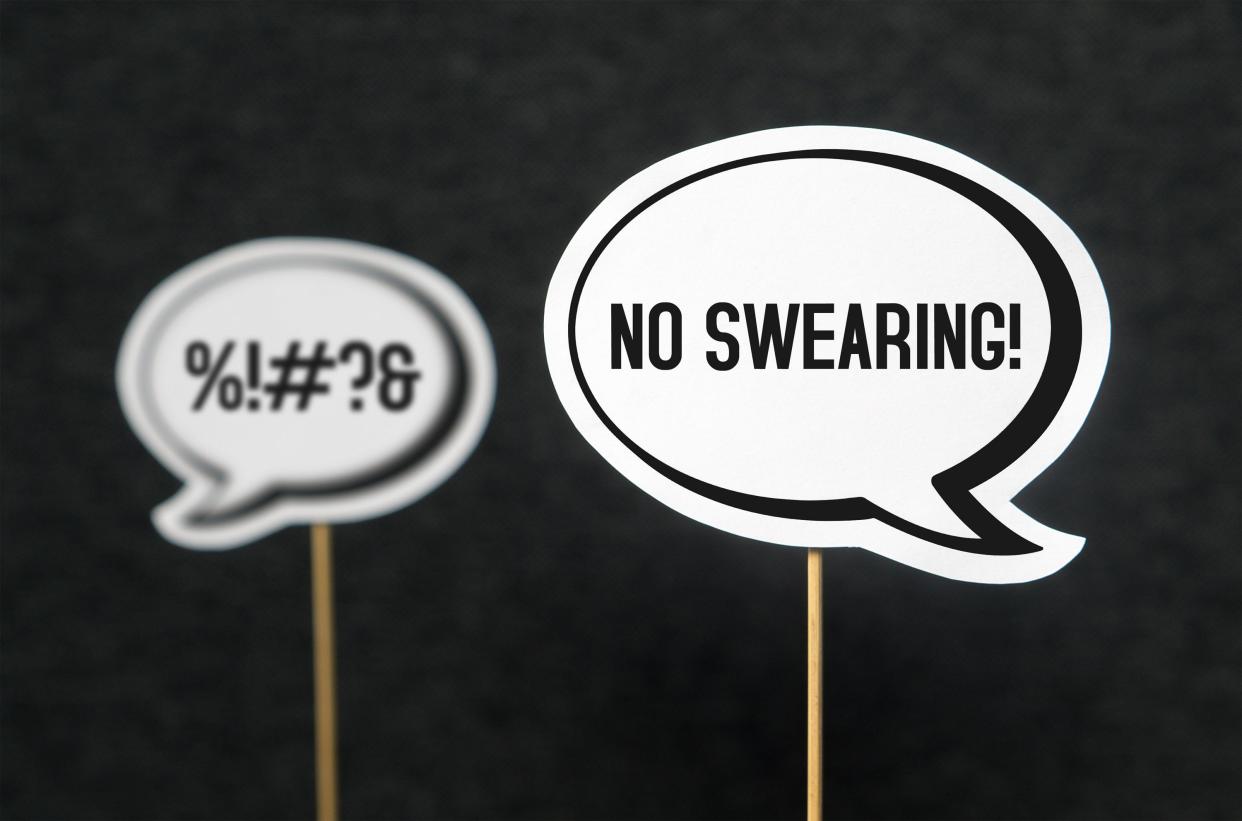Swearing friends have one woman wondering if they should clean up their chat

QUESTION: I am a 50+ lady that interacts with people who are a couple decades younger than myself. I have noticed that they use vocabulary that is often offensive and impolite. They think nothing of dropping "F-bombs" or other vulgar terms into everyday conversations. These words also make it into text messages that we exchange. I have observed a big increase in the use of foul language in everything from TV shows to movies and popular music. Am I behind the times? Is this lingo now considered "acceptable" given its prevalence in our society? Should I say something?
CALLIE’S ANSWER: Yes, you can absolutely say something. It's not "acceptable" but I agree with you. I do hear it a lot, as well. I try to not say "bad words" as I have younger children who listen to everything I say. I have said, "language," to people before who are in the presence of my child when they use it. They get it, usually right away.
LILLIE-BETH’S ANSWER: You’re right in that it’s hard to avoid the f-word and other curse words these days. To me, cussing has become so prevalent in popular culture that it is often meaningless. Is it too hard for writers and speakers to come up with a more creative way to express strong feelings? There are some great songs and shows with cursing in them that add to the story; there are also many examples where the cursing allegedly meant for shock value comes across as lazy writing.
You can choose to tune out these words, you can spend time with different friends and watching different shows, or you can ask your friends out of curiosity why they use these words so often. It might be interesting to hear their responses. Not every circle of people uses these words regularly, and I don’t think it depends on the age of the people.
An occasional f-bomb can provide cathartic relief for tough situations, and we as a society have had a lot of those in recent years. But that doesn’t mean these words have to be everyday words. I would love for people to use them more sparingly instead of as a default, unkind and coarse response to things and people that made them mad. You’re not behind the times; you’re just spending time with groups of people for whom these words are the norm. Also, remember that even curse words are just words and they only have power if we give it to them. It might be easier to ignore them if you don’t give them any power at all.
HELEN’S ANSWER: It is important for all of us (myself included) to refrain from using offensive language in polite conversation. It makes people around us very uncomfortable. No matter how many times we hear these words used by others, they are not words that we should be saying or texting.
The vulgar words "lingo" can convey a total lack of class. If the language you hear offends you, you can leave the room or voice your displeasure in a gentle way so as not to draw a lot of attention to the situation and make a scene. You can also avoid the company of those who are throwing around coarse and horrible words so they can feel more powerful.
GUEST’S ANSWER: Kirsten Cash, speech-language pathologist: It does seem that words once considered highly inappropriate for social conversation have become part of the vernacular. I would not say you are “behind the times” by any means. Instead, I would say that if you were to study language development over the centuries, you would see that word meaning evolves over time. Think about words you used in your teen years, for example, that bothered your parents or grandparents. Remember how “bad” meant “good” in the ‘80s? Lol!
While I am in no way meaning to defend those who choose to use vulgar language cavalierly, I can say sometimes we have to adjust our comfort level. My suggestion would be to either accept your friends for who they are (or, in this case, the language they choose to use) or work toward finding a social circle that better aligns with your comfort level. There is not a “right” or “wrong” in this situation. Instead, it’s a matter of what is right for you.
Since 2009, Callie, Lillie-Beth and Helen have written this generational etiquette column. They also include guest responses from a wide range of ages each week. So many years later, Callie is 20-plus; Lillie-Beth is 40-plus and Helen is 60-plus. To ask an etiquette question, email helen.wallace@cox.net.
This article originally appeared on Oklahoman: Reader asks if cursing is now the norm and if she should comment on it
